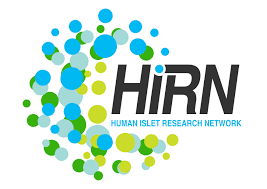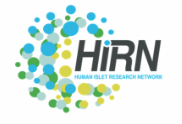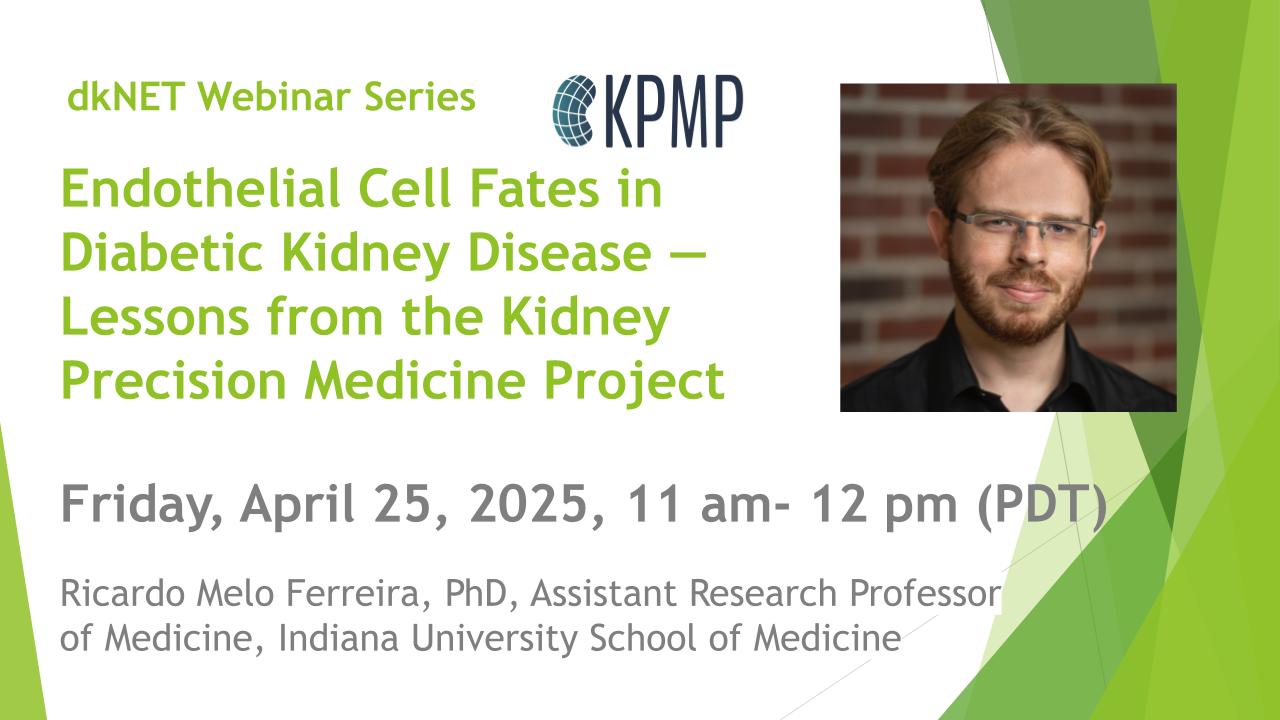Leaving Community
Are you sure you want to leave this community? Leaving the community will revoke any permissions you have been granted in this community.
NIDDK Funding Opportunity: New Investigator Gateway Awards for Collaborative T1D Research
Here is the information from NIDDK:
"New Investigator Gateway Awards for Collaborative T1D Research (R03 Clinical Trial Not Allowed)
Funding Opportunity Purpose
The New Investigator Gateway Award in T1D Research is designed to support a robust pipeline of innovative projects and talented new investigators in T1D research. In addition to providing support for preliminary research, the Gateway program provides an opportunity for new Program Directors/Principal Investigators (PD/PIs) to pursue their studies within the intellectual environment of a select number of large, ongoing collaborative research programs. Embedding awardees within an established scientific framework in each of these consortia will provide unique opportunities for New and Early Stage Investigators to increase their understanding of key questions in the field, to network, and to establish unique and potentially long-lasting collaborations that will propel their careers forward. Bringing New and Early Stage Investigators into existing collaborative research networks will also benefit the networks by providing new ideas and perspectives.
Key Dates
Letter of Intent Due Date(s): May 1, 2022 and February 20, 2023
Application Due Dates (New Application): June 1, 2022 and March 20, 2023
All applications are due by 5:00 PM local time of applicant organization.
Applicants are encouraged to apply early to allow adequate time to make any corrections to errors found in the application during the submission process by the due date.
Funding Opportunity Description
Background
Type 1 diabetes (T1D) is an autoimmune disease that destroys insulin-producing cells in the pancreas. The loss of proper glucose control that ensues leads to a variety of pathologic consequences, including complications affecting the heart, eye, nerves, kidney and urogenital systems. While the incidence of T1D is increasing worldwide, research continues into the underlying mechanisms contributing to disease onset and severity, and into the development of therapies to effectively prevent or intervene in the disease process.
The Gateway Award in T1D Research is designed to ensure a robust pipeline of innovative research and talented new investigators in T1D research. In addition to providing support for preliminary research, the Gateway program provides an opportunity for new investigators to pursue their studies within the intellectual environment of a select number of large, ongoing collaborative research programs. Embedding awardees within the established scientific framework afforded by each of these consortia will provide unique opportunities for New Investigators (NI) and Early Stage Investigators (ESI) to increase their understanding of key questions in the field, and for networks to benefit from new ideas and diverse perspectives.
Objectives and Scope
The Gateway Award in T1D research supports New Investigators and Early Stage Investigators who are interested in pursuing careers in T1D, including qualified researchers from diverse scientific backgrounds. The goal of the program is to provide support for high quality innovative and significant research by junior faculty engaged in basic, translational and clinical research that will firmly establish the awardees in a T1D-oriented career path and set the stage for competitive first R01 submissions.
A second key feature of the Gateway program is the opportunity it provides for awardees to enhance their careers through networking with investigators currently engaged in specific T1D-oriented research networks, trials and consortia. Given this feature, research to be supported should address significant barriers in T1D research that fit conceptually within the scope and goals of one of the consortia listed below.
To assist applicants in developing their application for this NIDDK initiative, there will be an information webinar hosted by NIDDK staff on March 1, 2022 from 4:00PM to 5:00PM ET. After the webinars, a list of frequently asked questions will be published. Please visit the NIDDK Meetings and Events webpage for more information about the Webinar and to view the FAQ after the webinar.
The Human Islet Research Network (HIRN): The Human Islet Research Network (HIRN; www.hirnetwork.org) supports collaborative research into the loss of functional beta cell mass in type 1 diabetes (T1D). HIRN’s overall mission is to better understand how human beta cells are lost in T1D, and to find innovative strategies to protect or replace functional beta cell mass in people with T1D. The HIRN program is configured as a modular network of research consortia, each defined by a specific set of research priorities.
The five current HIRN consortia include:
(1) The Consortium on Beta Cell Death and Survival (HIRN-CBDS) that is using human tissues to discover highly specific biomarkers of beta cell injury in asymptomatic T1D and developing strategies to stop beta cell destruction early in the disease process;
(2) The Consortium on Human Islet Biomimetics (HIRN-CHIB) that is combining advances in beta cell and stem cell biology with tissue engineering technologies to develop microdevices that support functional human islets and immune cells;
(3) The Consortium on Modeling Autoimmune Interactions (HIRN-CMAI) that is developing innovative approaches to model basic aspects of human T1D immunobiology and pathobiology in vivo, and developing strategies to interrupt immune activation in T1D;
(4) The Consortium on Targeting and Regeneration (HIRN-CTAR) that is focused on developing methods to increase or maintain functional beta cell mass in T1D through targeted manipulation of islet plasticity, or through engineering protection of islet beta cells from immune-mediated destruction; and
(5) The Human Pancreas Analysis Consortium (HIRN-HPAC) that is investigating the physical and functional organization of the human islet tissue environment, the cell-cell relationships within the pancreatic tissue ecosystem, and the contributions of non-endocrine components (acinar, ductal, vascular, perivascular, neuronal, lymphatic, immune) to islet cell function and dysfunction.
Research opportunities that could be pursued in collaboration with HIRN consortia include, but are not limited to:
- Using human islets and pancreatic tissues to identify components of the beta cell and its environment required for maintenance and function and/or instrumental in its pathogenic destruction;
- Identifying therapeutic targets of early disease to prevent the development of a fully developed autoimmune response, or to protect and replenish residual beta cell mass in at-risk or recently-diagnosed individuals;
- Using humanized in vivo models for exploration of the T1D pathogenesis and/or to test potential therapies;
- Developing new miniaturized assays for metabolism that could be adapted for use in biomimetic systems;
- Developing a biomimetic system that will allow for the exploration of immune?beta cell interactions;
- Developing cell-based therapies to enhance or restore glycemic control;
- Identifying novel biomarkers of T1D or developing synthetic reporter systems to monitor disease initiation, progression and response to therapy; and
- Developing methods for the non-invasive measurement of beta cell mass or function that may be used as endpoints in studies of preventing or ameliorating T1D.
Type 1 Diabetes TrialNet: Using knowledge gained through clinical research, TrialNet's mission is to prevent T1D and stop disease progression by preserving insulin production before and after diagnosis (see https://trialnet.org). TrialNet performs multicenter clinical trials of disease-modifying therapies, and longitudinal studies of the natural history of disease and mechanisms of T1D pathogenesis. TrialNet is an international collaborative effort involving clinical investigators, immunologists, islet cell biologists, industry and foundation partners, and families of people with diabetes working together to bring disease-modifying therapies into clinical practice.
Research opportunities that could be pursued in collaboration with TrialNet include, but are not limited to, topics outlined in the TrialNet Prioritization for Mechanistic Studies such as:
- Studies of well-characterized biomarkers that have the potential to inform the outcomes of clinical trials, such as surrogate endpoints;
- Defining biomarkers that identify different patient subpopulations based upon mechanism of disease progression, facilitating clinical trial design;
- Research into immune or metabolic pathways that provide insights into pathogenesis and/or therapeutic mechanism of action;
- Biomarker studies that will validate biomarkers against TrialNet clinical endpoints;
- Development of novel assays to measure key features of disease progression or response to therapy; and,
- Research related to the performance of more effective and efficient clinical trials for the prevention of T1D, such as strategies for participant engagement, recruiting, and retention.
The Environmental Determinants of Diabetes in the Young (TEDDY) Study: The long-term goal of the TEDDY study is to identify infectious agents, dietary factors, or other environmental agents, including psychosocial factors, that trigger T1DM in genetically susceptible individuals or that protect against the disease. Identification of such factors will lead to a better understanding of disease pathogenesis and may result in new strategies to prevent, delay or reverse T1DM. TEDDY currently consists of a consortium of six Clinical Centers (CC) and a Data Coordinating Center (DCC) that is carrying out studies to identify environmental causes of T1DM in genetically susceptible individuals.
The TEDDY study investigates: (1) genetic and genetic-environmental interactions, including gestational infection or other gestational events; and (2) childhood infections or other environmental factors after birth, in relation to the development of prediabetic autoimmunity and Type I Diabetes Mellitus (T1DM). The CCs recruit and enroll subjects, including obtaining informed consent from parents prior to or shortly after birth, obtain genetic and other samples from neonates and parents, and prospectively follow selected neonates throughout childhood or until development of islet autoimmunity or T1DM. With this approach, the TEDDY Consortium provides a coordinated, multi-disciplinary approach to this complex disease. It is anticipated that collection of information and samples in the standardized manner used by TEDDY may provide greater statistical power in research studies than might be possible in smaller independent investigations. The TEDDY has initiated a nested case-control study that includes samples from children who have developed autoantibodies or have been diagnosed with type 1 diabetes, and their age matched controls’ samples, that are analyzed in TEDDY laboratories. Analyses being conducted on the samples include assays of the gut microbiome, gene expression, proteomics, metabolomics, dietary biomarkers, SNPs, and whole genome sequencing. Data from these assays are available from the NIDDK Central Repository as well as the TEDDY study website. Please see https://teddy.epi.usf.edu/research/.
Research opportunities for data analysis that could be pursued in collaboration with the TEDDY study include, but are not limited to:
- Identifying environmental agents
- Identifying biomarkers of disease
- Identifying infectious agents
- Defining etiology and pathogenesis of disease






